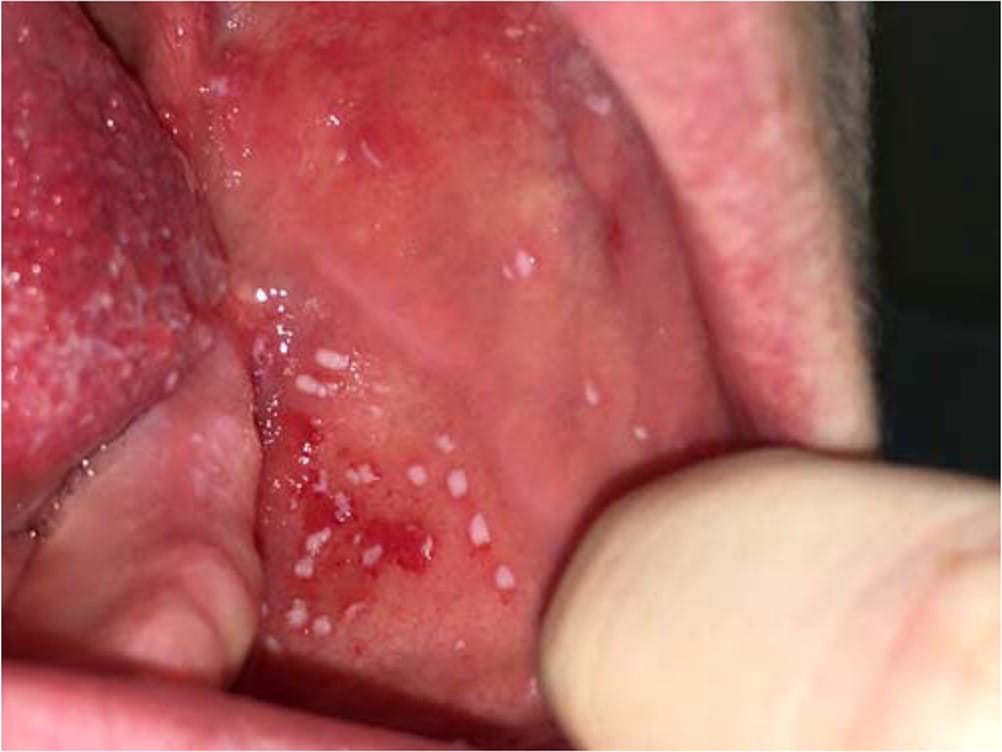OneMedicine | Private GP Clinic | Birmingham


Measels is Contagious
Measles might sound like something from the past, but it’s still around, and has been increasingly seen. Measels primarily spreads through the air, but also through direct contact. Just being in the same room as someone with measles can be enough to catch it, even a couple of hours after they’ve left.
That’s why spotting the signs early and staying protected is so important.
Measels Signs and Symptoms
It usually starts like a heavy cold. You might notice:
✔ A high fever
✔ Runny nose
✔ Cough
✔ Red, sore eyes (a bit like conjunctivitis)
✔ Feeling tired and unwell
✔ Loss of appetite
A few days later, other signs appear—ones that are more specific to measles:
✔ Tiny white spots inside the mouth (called Koplik spots)
✔ A red-brown blotchy rash that starts on the face and spreads down the body
✔ Fever may spike again when the rash shows up
Measels in Adults
In adults, measles can look very similar—but the symptoms are often more severe. Alongside the same signs, adults may feel particularly drained, with intense fatigue, body aches, and a high fever. The rash follows the same pattern, but adults are more likely to suffer complications like pneumonia, hepatitis, or (in rare cases) brain inflammation. Hospital admission is more common in adults than in children. Adults who are not sure about immunisation, should get two doses of the MMR vaccine, 4 weeks apart.
Measels in Pregnancy
Measles during pregnancy can be especially concerning. Pregnant women who catch measles have a higher risk of complications like pneumonia and may need hospital care. The infection can also affect the baby, increasing the chances of miscarriage, premature birth, or low birth weight. If you’re pregnant and develop symptoms or think you’ve been exposed, contact your GP or midwife straight away. The MMR vaccine can’t be given during pregnancy, but being fully vaccinated before pregnancy offers the best protection for both mother and baby.
Vaccination
Measels is not just uncomfortable—it can be dangerous. That’s why early recognition and staying up to date with vaccinations really matters.
Worryingly, measles cases have been rising in parts of the UK. One big reason is that fewer people are getting vaccinated. During the pandemic, many children missed routine appointments. On top of that, social media misinformation and general confusion have led some parents to worry unnecessarily about vaccine safety. Others simply don’t realise their child missed a dose – or assume it’s too late to catch up.
The MMR vaccine contains live, weakened (attenuated) forms of the measles, mumps, and rubella viruses. These weakened viruses can’t cause the full diseases in healthy people, but they help your immune system learn how to recognise and fight them in the future
The good news? The MMR vaccine is safe, effective, and easy to get. It protects against measles, mumps, and rubella in one go. Two doses of the MMR vaccine are recommended as the best way to protect against measles, mumps, and rubella. Most children get it in two doses—one at around 12 months, and another before school. But even if those were missed, you can still get protected. Adults who aren’t sure of their vaccination status can get catch-up doses.
Who Shouldn’t Have the MMR Vaccine?
The MMR vaccine is safe for most people, but there are a few situations where it’s best to avoid it or speak with your doctor first:
✔ Pregnant?
The MMR vaccine isn’t recommended during pregnancy, as it could pose a risk to your baby. If you’re planning to get pregnant, it’s best to wait at least four weeks after having the vaccine.
✔ Severe Allergies
If you’ve ever had a serious allergic reaction to gelatin, neomycin (an antibiotic), or a previous dose of the MMR vaccine, it’s important to avoid it and discuss alternatives with your GP.
✔ Weakened Immune System
If you have conditions or treatments that affect your immune system—like HIV, cancer, or medications such as steroids – speak with a doctor before getting the vaccine.
✔ Blood Disorders or Transfusions
If you’ve had low platelet counts, a recent blood transfusion, or been given blood products, it’s worth checking in with your healthcare provider first.
✔ Feeling Unwell?
If you’re moderately or severely unwell, it’s usually better to wait until you’re feeling better before having the vaccine.
How do we manage Measels?
If someone does get measles, what’s the best course of action?
There’s no specific antiviral treatment for measles, but most people recover with simple supportive care. That means:
✔ Rest, fluids, and keeping the fever down with paracetamol or ibuprofen
✔ Staying at home for at least 4 full days after the rash appears, to avoid spreading it to others
✔ Keeping away from babies, pregnant women, and people with weak immune systems
✔ Letting your GP or NHS 111 know before attending—so they can take steps to avoid exposing others
✔ In more serious cases (e.g., breathing difficulty, chest pain, confusion, dehydration), seek urgent medical help
When to seek Help with Measels
When to seek medical help for measles:
✔ If the fever stays very high (above 39°C) or lasts more than 5 days
✔ If breathing becomes difficult, you notice chest pain, or there’s a persistent cough
✔ If the rash spreads rapidly or looks infected (painful, swollen, or weeping)
✔ If there are signs of dehydration—like very little urine, dizziness, or extreme thirst
✔ If there’s severe headache, neck stiffness, confusion, or seizures (signs of possible brain inflammation)
✔ If you experience severe ear pain or hearing problems
✔ If symptoms suddenly worsen after initial improvement
✔ If you are pregnant, have a weakened immune system, or have other serious health conditions and develop measles symptoms
✔ If a young infant (under 1 year) shows any signs of measles or is unwell
It’s always better to check with your GP or call NHS 111 if you’re unsure. Early medical advice can help prevent complications and ensure proper care.
Getting vaccinated protects not only you, but everyone around you—especially the most vulnerable. It’s a small step that makes a big difference.
Measles spreads quickly—but with good awareness, early care, and strong vaccine coverage, we can stop it in its tracks.
Royal College of Paediatrics and Child Health
For a helpful poster and more trusted info, check out the Royal College of Paediatrics and Child Health’s “Think Measles” resource here: https://www.rcpch.ac.uk/resources/think-measles-poster
If you are concerned, we at OneMedicine offer same day appointments, online and in person, to help you take the right course of action for your family.
















